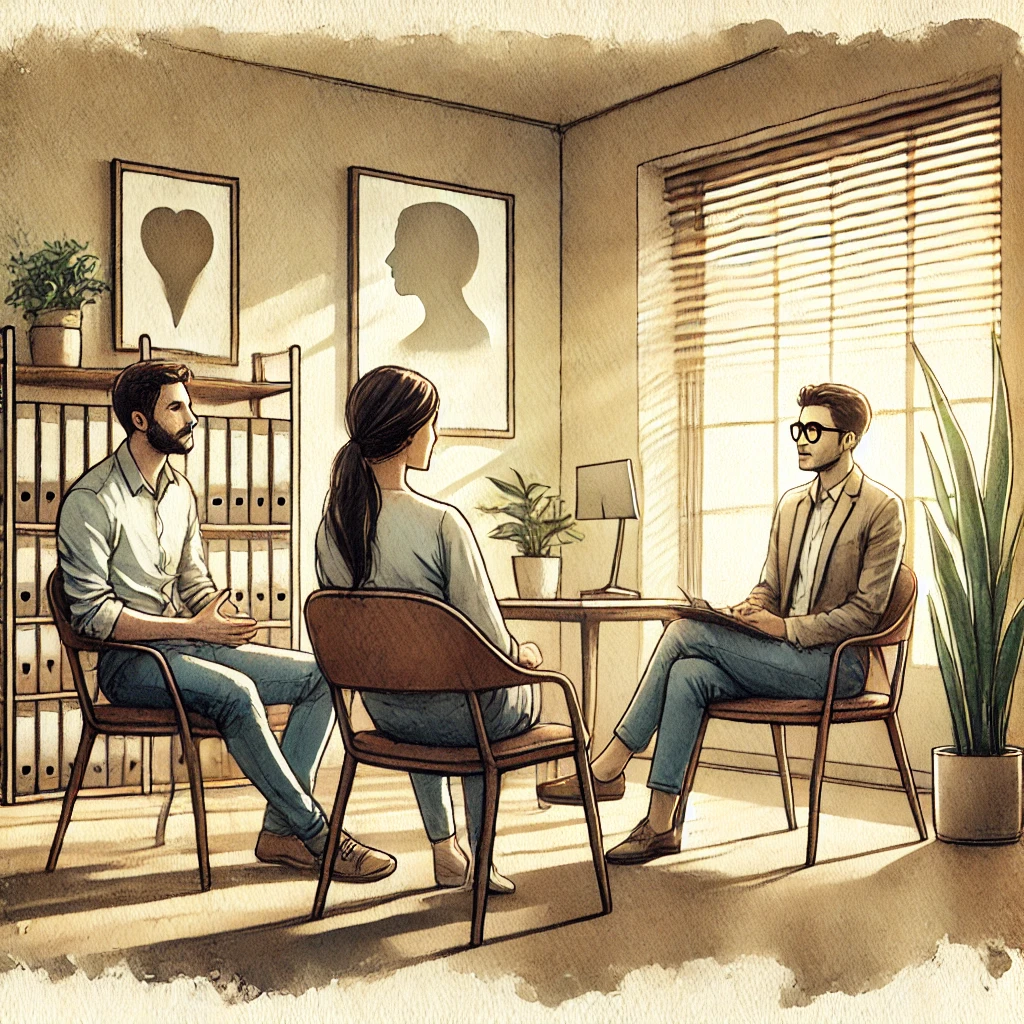
Is Marriage Therapy Covered by Insurance? A Psychoanalytic Exploration of Barriers and Possibilities

Isaac Ray, a prominent 19th-century American psychiatrist and one of the founders of forensic psychology, observed, “Insanity was the price we pay for civilization.” This insight reminds us that societal progress, while necessary, often comes with emotional and psychological costs. Every civilization defines “normal” and “abnormal” according to its own cultural values, frequently pathologizing behaviors that deviate from the mainstream. As cultures evolve, so too must our understanding of mental health, creating a need for culturally sensitive therapy.
In today’s world, the increasing recognition of neurodiversity—such as autism and ADHD—and the growing visibility of diverse gender and sexual identities reflect not only medical advancements but also cultural shifts. These changes compel us to rethink rigid diagnostic frameworks and adopt more inclusive approaches to mental health care.
Modern psychiatry and psychology emerged within a predominantly Eurocentric, heteronormative framework. As Michel Foucault explored in “The History of Madness,” societal institutions historically defined and managed “madness” to reinforce social order and power structures. Madness, according to Foucault, was less about medical pathology and more about societal control.
This Western-centric approach led to rigid diagnostic criteria that often ignored cultural variations. For instance, homosexuality was pathologized as a mental illness well into the 20th century, reflecting societal biases rather than objective science. Similarly, women who resisted traditional gender roles were sometimes labeled as hysterical, reinforcing patriarchal norms.
These historical biases continue to affect mental health care today, as diagnostic models often fail to account for cultural diversity, leading to potential misdiagnosis and inappropriate treatment.
Applying Western mental health models universally risks overlooking cultural nuances. As a young student in South Africa, I quickly realized the dangers of applying Western frameworks indiscriminately in a multicultural context. Without understanding cultural differences, well-meaning practitioners risk perpetuating pseudoscientific discrimination by labeling culturally appropriate behaviors as pathological.
Arthur Kleinman, a pioneer in cultural psychiatry, highlighted that mental illness cannot be separated from its cultural context. His research demonstrated that symptoms manifest differently across cultures, necessitating culturally sensitive approaches to both diagnosis and treatment. For example, while depression in the West may be described in terms of sadness and withdrawal, other cultures may express it through physical symptoms like fatigue or bodily pain.
In the diverse cultural environment of the Bay Area, where many migrate seeking better opportunities, ignoring cultural frameworks can lead to further suffering. Culturally sensitive therapy ensures that these unique experiences are acknowledged, respected, and integrated into treatment.
In the U.S., rising awareness of neurodivergent identities, such as autism and ADHD, reflects societal progress rather than an increase in cases. Historically, individuals with these traits were often marginalized or misunderstood. Advocacy efforts and cultural shifts have led to a broader acceptance of neurodivergence as a natural variation in human experience rather than a disorder requiring correction.
For instance, ADHD was once narrowly defined by hyperactivity in young boys. Today, it is understood as a spectrum that includes inattentiveness and emotional dysregulation, often presenting differently in girls and adults. Similarly, autism, once seen solely through the lens of severe impairment, is now recognized as encompassing a wide range of experiences and abilities.
Likewise, increased visibility and acceptance of LGBTQIA identities challenge traditional notions of mental health. Historically pathologized, these identities are now better understood as natural variations of human expression, though lingering biases in both society and healthcare persist.
The DSM-5, the latest edition of the Diagnostic and Statistical Manual of Mental Disorders, reflects these cultural changes by expanding diagnostic criteria and acknowledging greater diversity in mental health presentations. However, while diagnoses offer validation and access to care, they also force us to confront deeper questions about how we define wellness and normalcy.
Psychodynamic therapy provides a valuable framework for exploring mental health through a culturally sensitive lens. Rather than viewing diagnoses as fixed labels, psychodynamic approaches focus on understanding the underlying emotional and relational dynamics that shape individual experiences. This allows for a more personalized and nuanced approach to care.
Freud’s concept of repression helps explain how societal pressures can lead individuals to unconsciously suppress parts of themselves, resulting in psychological distress. Jung’s theory of the collective unconscious emphasizes how cultural narratives shape inner conflicts. Together, these ideas highlight the importance of addressing both personal and societal influences in therapy.
For neurodivergent individuals or those navigating diverse identities, psychodynamic therapy offers a space to explore how cultural expectations have shaped their self-perception. By unpacking these layers, therapy fosters self-acceptance, emotional growth, and a deeper understanding of one’s unique experiences.
As society evolves, so too must our approach to mental health. Diagnoses like autism, ADHD, and diverse gender identities are not merely medical labels—they reflect broader cultural shifts and challenges. Culturally sensitive therapy recognizes the importance of understanding mental health within its cultural context, respecting diverse identities, and addressing societal influences.
At Bay Psychology Group, Inc., our commitment to culturally sensitive therapy is reflected in the diversity and expertise of our team. Many of our staff are natively bilingual, offering therapy in languages such as Spanish and French, and most have lived abroad, giving them firsthand experience in navigating different cultural contexts. Additionally, we prioritize hiring clinicians who identify as queer or come from non-dominant cultural backgrounds. This intentional diversity ensures that we bring a broad, empathetic perspective to our work, allowing us to meet our patients with deep cultural awareness and genuine understanding. Whether you’re facing acculturative stress, identity-related concerns, or seeking a therapist who truly gets it, we’re here to help. Reach out to learn more about how we can support you.
Dr. Brian Sedgeley, is a clinical psychologist and the president and founder of Bay Psychology Group, Inc. a psychotherapy and psychological services clinic in Oakland CA.